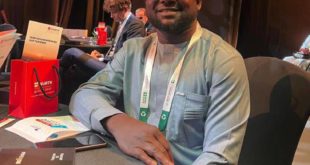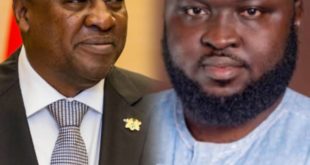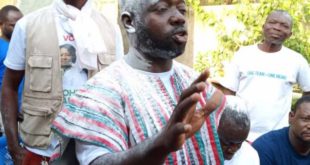Before moving Cecilia Dapaah’s case to the Economic and Organized Crime Office (EOCO), the Office of the Special Prosecutor (OSP) refuted allegations that it had cleared the former minister of sanitation.
The OSP launched a comprehensive investigation in response to claims of corruption and offenses linked to corruption involving their domestic workers, who were purportedly stealing substantial quantities of international and local cash in addition to personal items owned by Ms. Dapaah and her spouse.
Following months of investigation, the OSP closed the case, noting the predominance of money laundering, and forwarded it to EOCO.
The Attorney General’s office, however, cautioned EOCO against conducting any more investigation, citing existing police probes into Dapaah’s financing sources and a lack of evidence to sustain a money laundering case.
Although EOCO is still able to launch its own inquiry, the AG admitted in its recommendation that it was “not necessary,” noting a lack of substantial reasons.
“In the absence of the identification of any criminality, associated with the properties retrieved from the suspects, the OSP’s referral to EOCO for investigations to be conducted into money laundering is without basis”, the Attorney General’s office advised.
The Attorney General then clarified that the OSP, not his office, had cleared Ms. Dapaah.
In response, the OSP stated that the inquiry mostly turned up cases of money laundering and that it did not clear Ms. Dapaah of allegations relating to corruption.
They emphasized the FBI inquiry report’s confidentiality provisions and the fact that EOCO had not requested a copy of it.
Mr. Samuel Appiah Darko, Director of Strategy, Research, and Communications at the OSP, went into further detail about why they chose to send the matter to EOCO as opposed to conducting an independent investigation into money laundering.
“We want to make it very clear that EOCO did not request for the FBI report. Even if they did, the FBI report has a lot of confidentiality clauses that were directed particularly to the OSP and you can’t just give it to another agency because you have transferred the case. There ought to be a lot of inter-agency collaboration and clearance. So if it had happened, we may have triggered the clearance clauses so that either we are cleared by FBI or FBI sends the report directly to EOCO,” Mr Darko explained to Joy News.
He said: “The OSP should be considered as a whistleblower to EOCO. So as a whistle-blower, we gave EOCO platinum information. Ordinarily, you will not even find other agencies giving such information to EOCO.”
“Our referral is not just in respect of a transaction in America. Also, we were not conducting a money laundering investigation, we were conducting a corruption investigation. We are of the opinion that we had all it takes to send that referral to EOCO because there was no way we could have proceeded and then investigated and written a report on money laundering and sent it to EOCO for onward transfer to the Attorney General. We only referred a matter to EOCO as whistle-blowers for EOCO to investigate.We cannot instruct EOCO on what they should do,” Mr Darko stated.
Source: Ghanatodayonline.com
 Ghanatodayonline.com News, Politics, Health, Education & More
Ghanatodayonline.com News, Politics, Health, Education & More



